Reflections as NGO Delegation for Asia-Pacific on 55th Programme Coordinating Board
PCB 55th Meeting at Nairobi, Kenya
As the incoming NGO delegate from Asia and the Pacific, representing Youth LEAD, I participated by calling the Member States and UN agencies to uphold their principles and commitments toward achieving the global HIV response. The agenda began with Executive Director Winnie Byanyima’s inspiring presentation, emphasizing the urgent need for global solidarity and decisive action. Her speech highlighted challenges like a widening funding gap, inadequate prevention efforts, and emerging drug resistance. She called for governments, donors, and communities to embrace a sustainable vision to end AIDS by 2030, leveraging innovations such as long-acting medicines. Despite progress in treatment and prevention, systemic barriers—harmful laws and funding shortfalls—persist. The speech resonated as a rallying cry for collective commitment to human rights and equity for a resilient HIV response.
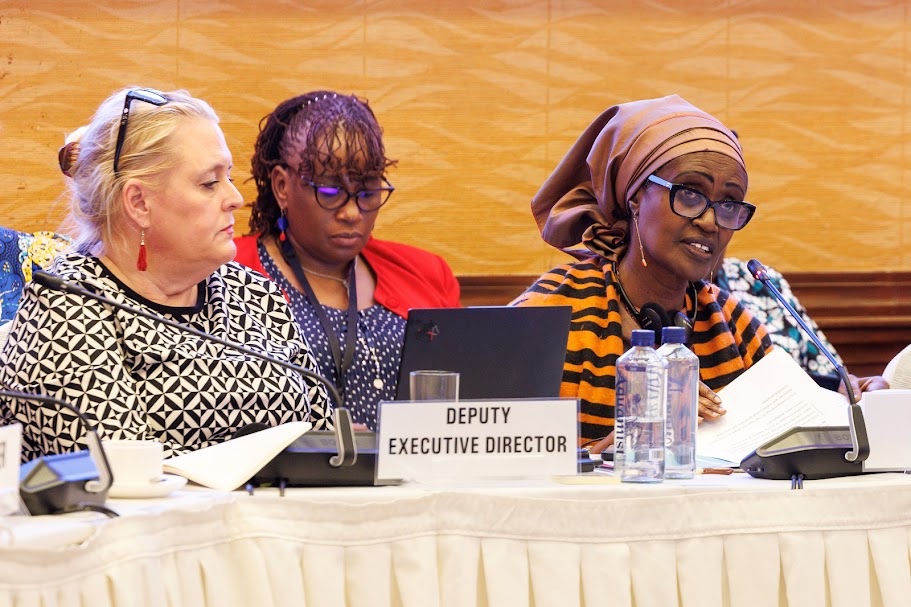
A highlight of the meeting was the NGO report, which underscored the unequivocal role of community leadership in achieving the Global AIDS Strategy goals. It sheds light on critical barriers, such as shrinking civic spaces, anti-rights movements, and inadequate funding, which hinder progress in HIV prevention and treatment. The report emphasized the urgent need for sustainable financing, accountability frameworks, and collaborative efforts to support community-led initiatives. Despite these challenges, the resilience of communities remains central to advocacy, service delivery, and addressing structural inequalities. Young people and community leaders support the NGO report and called for a renewed global commitment to human rights, partnerships, and investments to empower marginalized groups for a sustainable and inclusive HIV response.
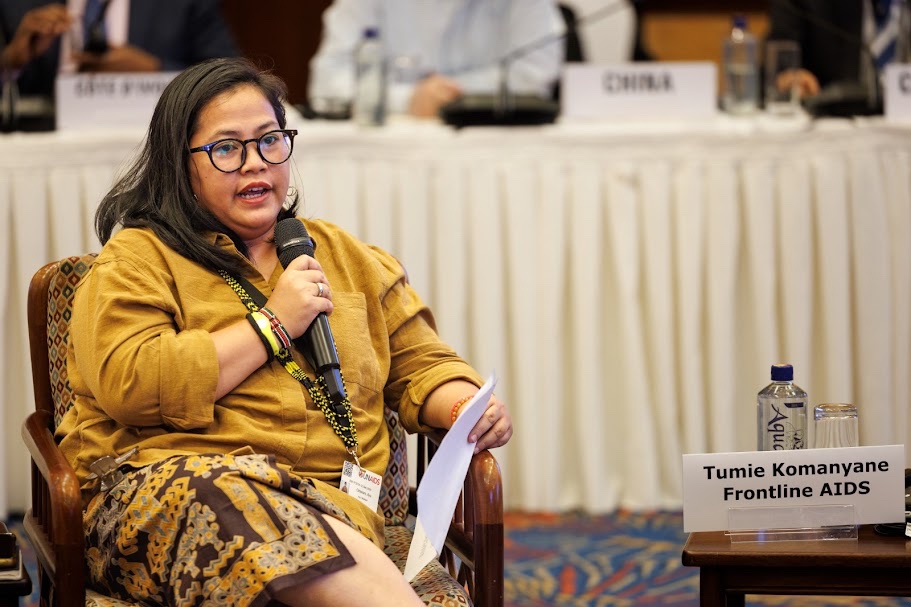
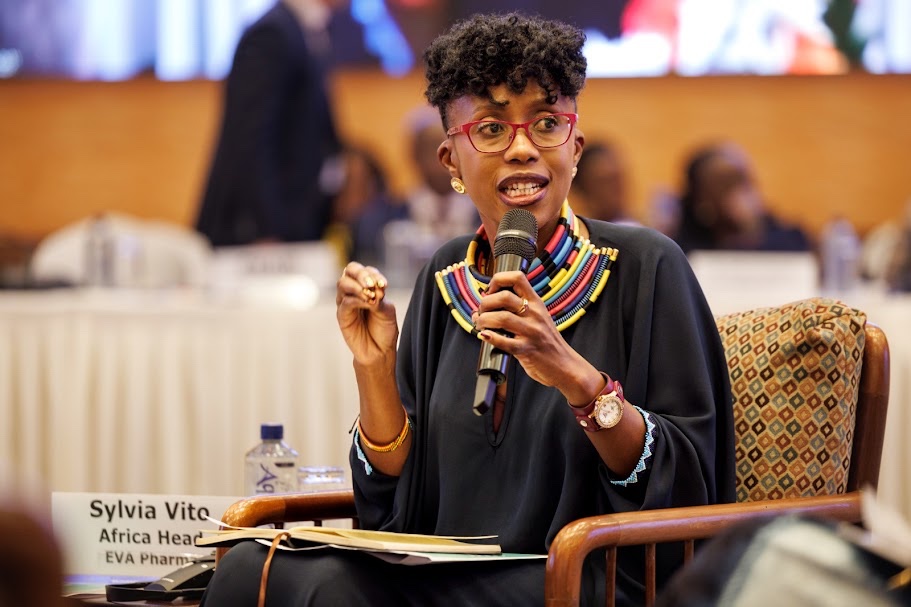
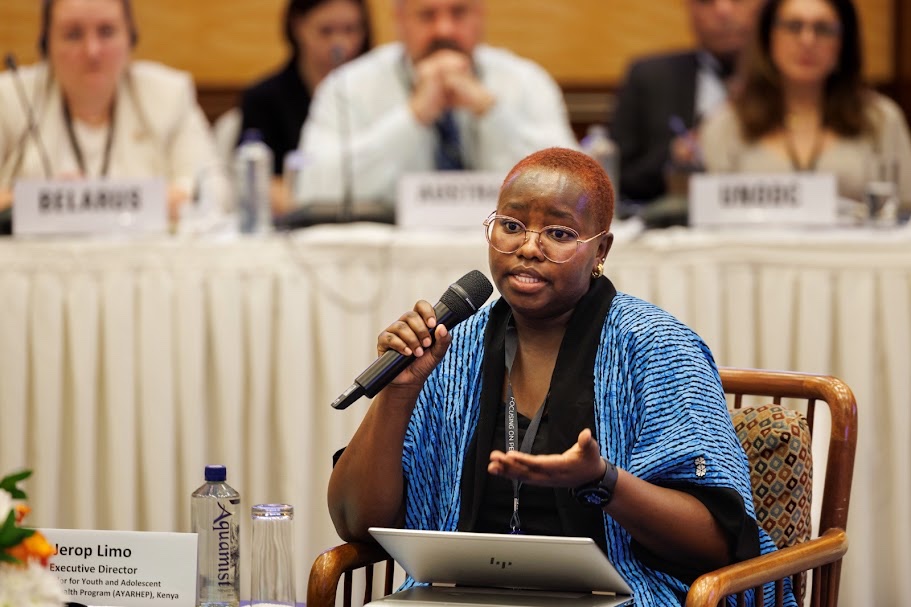
The mid-term review of the Global AIDS Strategy 2021–2026 highlighted both significant achievements, such as record reductions in HIV infections and deaths, and unmet 2025 targets due to persistent inequalities, funding gaps, and political challenges. This review reinforced the urgency of enhanced prevention, equitable treatment access, and robust community engagement to meet the 2030 goals.
Similarly, the report on HIV in Prisons and Other Closed Settings revealed the disproportionate burden of HIV in prisons caused by overcrowding, inadequate services, stigma, and discriminatory laws. Comprehensive reforms, including the integration of health services into public systems and addressing stigma, were called for to ensure equity for incarcerated populations.
The Annual Evaluation Report (2022–2023) and 2024–2025 Evaluation Plan offered a framework for decision-making through assessments of UNAIDS's interventions. It highlighted the importance of joint evaluation processes, capacity-building, and addressing inequalities, all while maintaining an independent and collaborative approach to foster sustained impact.
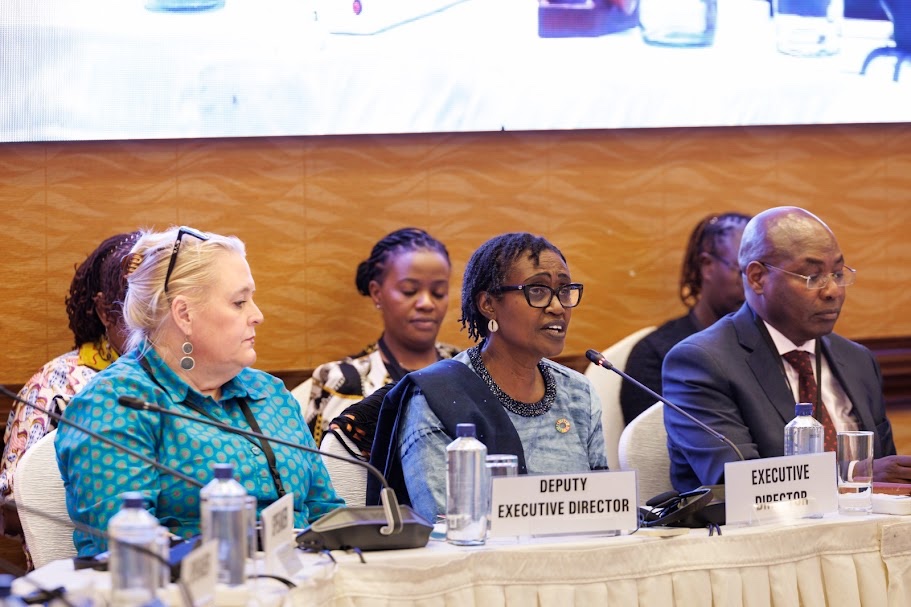
Witnessing the drafting of decision points was an enlightening experience, offering insight into the diplomacy required to advocate for human rights within HIV programs. Despite resistance from the opposition, the unwavering spirit in the room—especially among young people and key populations—strengthened the resolve to champion community-led responses. This meeting showcased the resilience, determination, and collective commitment needed to advance the global HIV response.
Site Visitation to Community-Led Organizations
The day before the 55th UNAIDS Programme Coordinating Board (PCB) meeting in Nairobi, all the participants have a chance to witness the power of community-led responses across various service levels. A site visit allowed me to see firsthand how these initiatives save lives by providing HIV prevention, testing, and treatment. Through dialogue, we understand that these community-driven efforts are essential in addressing gaps in national programs caused by stigma and discrimination, anti-gender and anti-right movements as well as shrinking civic space.
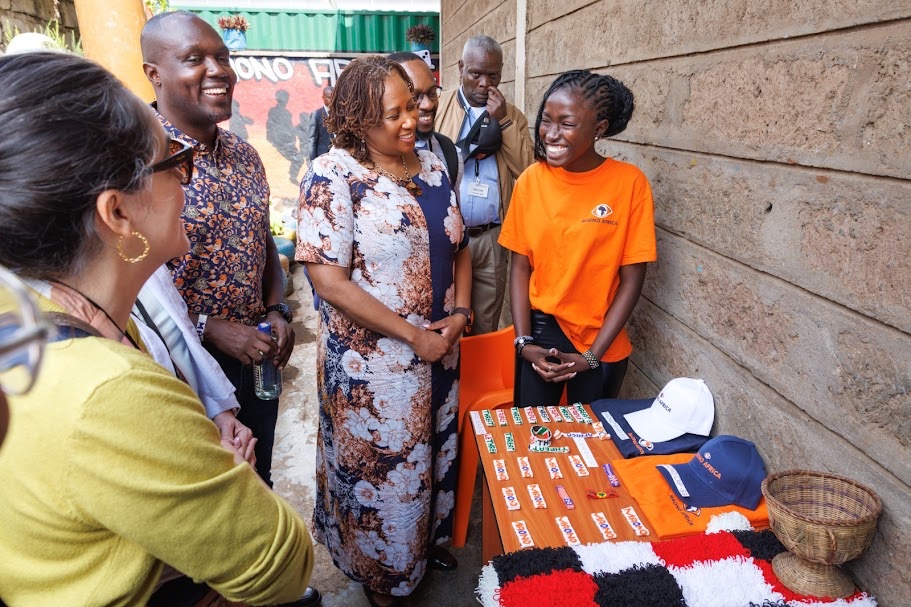
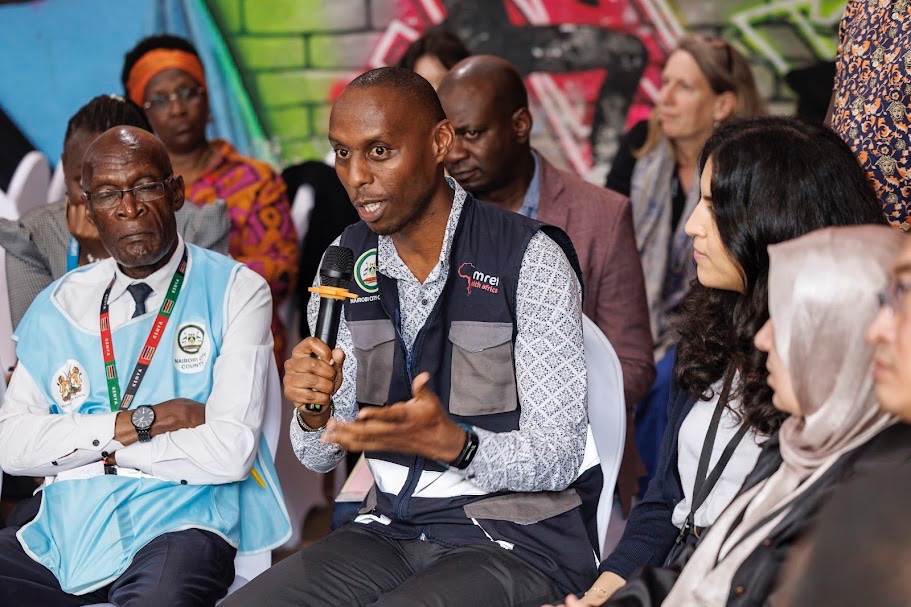
Moving forward
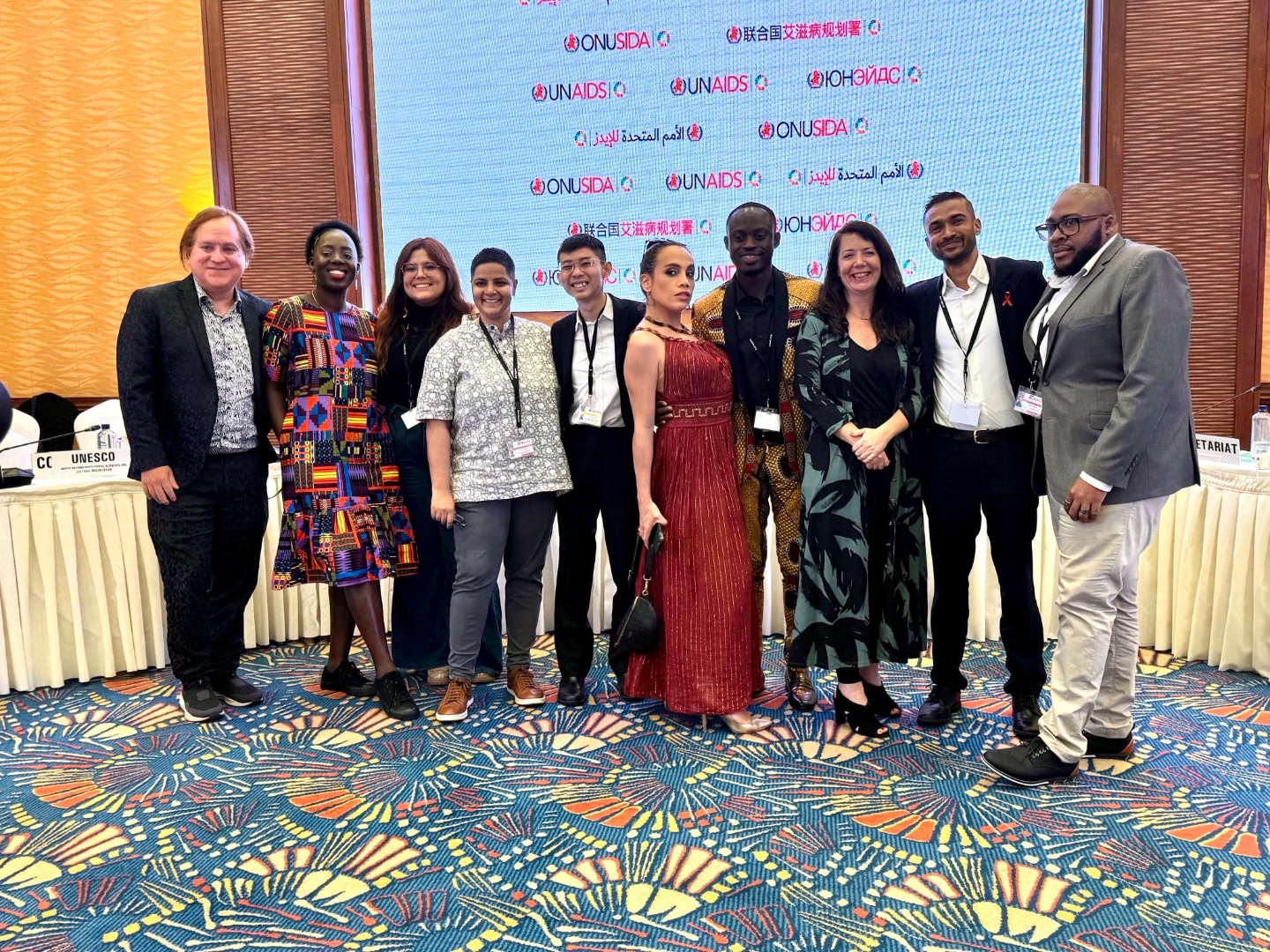
Moving forward, the new PCB NGO delegates will focus on the governance of the UNAIDS structure and its global strategies to end AIDS. However, we remain committed to providing opportunities for civil society across the region to engage in UNAIDS-related processes, particularly in reviewing its strategies and direction.
A key priority will be contributing to the High-Level Panel and development of the next Global AIDS Strategy for 2026–2031. We will actively reach out through various mechanisms to engage civil society organizations across different regions, gather their feedback, share critical information, and create platforms that enable meaningful participation and advocacy.
Intervention by Youth LEAD’s Program Officer, Mr. Jeremy Tan Fok Jun
Thank you, Chair, and the comprehensive report by the NGO delegates:
“When I was 18, I was a young gay boy exploring my sexuality with excitement and curiosity. Through dating apps and online platforms, I discovered what it meant to feel desired and free. It was empowering—a time when I felt like I was finally in control of my identity.
But then, things changed. I started feeling unwell—just a fever at first, but it wouldn’t go away. After a month, I went to the doctor and was offered an HIV test. I’ll never forget that moment when I heard the words ‘HIV-positive,’ with a CD4 count of just 120. I was terrified and did not where to turn for support.”
This is the story of Thomas—But also the reality many young people face, and one I’ve witnessed countless times in my work with young key populations.
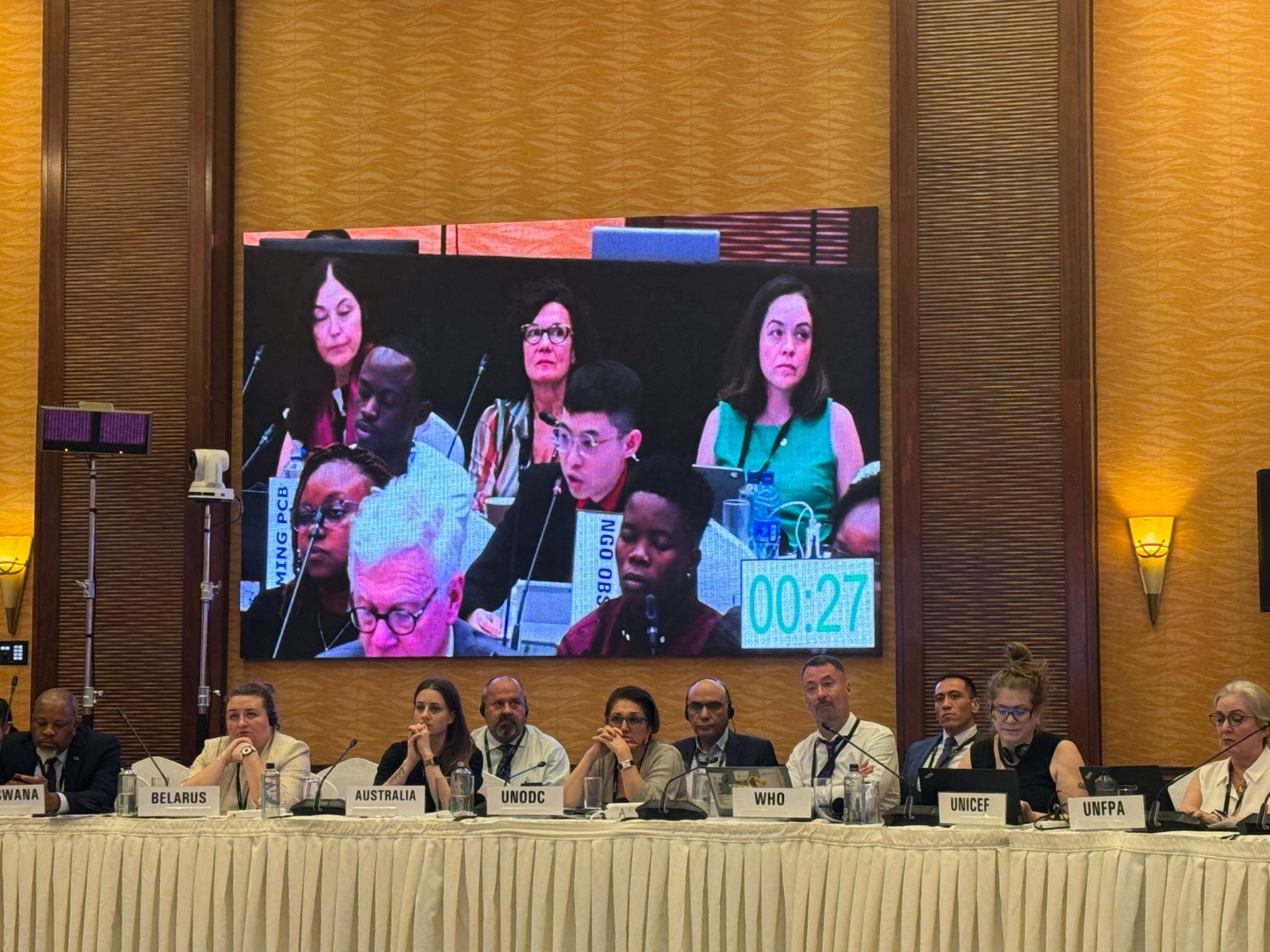
My name is Jeremy Tan, represent Youth LEAD, a regional youth-led organization working with young key populations across Asia-Pacific. Today, I want to remind you one of the barriers that hold us back in global HIV response, which is the shrinking space for quality sex education.
I want all of us to acknowledge the elephant in the room.
According to the UNAIDS Global AIDS Update 2023, fewer than 50% of young people in Asia-Pacific have comprehensive HIV knowledge. This isn’t just a statistic—it’s a reflection of how many of us are left to navigate our sexual health in the dark, without the tools or support to make informed decisions.
If we know that comprehensive sexuality education can help us end AIDS, why aren’t we utilizing this tool enough? CSE and community-led responses are not just programs; they are lifelines that require sustainable funding. Investing in CSE isn’t just about achieving global HIV targets; it’s about saving lives and empowering the next generation.
We know that community-led organizations are at the forefront of reaching young people, including key populations, to provide sexual and reproductive health information and services—yet systematic attacks by anti-rights and anti-gender movements continue to undermine these critical efforts.
To conclude, I urge everyone to see young people beyond the public health statistics, but also focus on our struggles, our resilience, and our potential. Please remember that young people can support the HIV response too, if you do not leave us behind.
Thank you. Asante.

